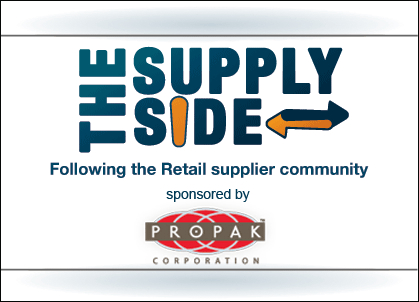The Supply Side: P&G, PepsiCo, General Mills lead the 2015 Kantar PoweRanking report
by November 12, 2015 10:50 pm 271 views

Editor’s note: The Supply Side section of The City Wire focuses on the companies, organizations, issues and individuals engaged in providing products and services to retailers. The Supply Side is managed by The City Wire and sponsored by Propak Logistics.
2015 has been no bed of roses for Wal-Mart suppliers amid a changing retail landscape, tighter operating margins, more overhead costs as a supplier, and increased transparency expectations from consumers.
Kantar Retail recently released its 2015 PoweRanking Composite for major consumer packaged goods companies that serve retail. According to Kantar, the report “identifies those retailers and manufacturers who set the standard of performance as ranked by their trading partners. This provides benchmarks for retailers and manufacturers across trade channels.”
Proctor & Gamble again topped the list with a composite score of 26.7%, while Pepsico upset General Mills for the No. 2 spot at 19.9% on the composite index. General Mills scored a 19.6%, while Coca-Cola ranked No. 4 at 15.4% and Kraft Foods rounded out the top 5 with a composite score of 13.7%.
The next five scores include: Unilever, 11.2%; Kellogg, 9.6%; Johnson & Johnson, 8.3%; Nestle, 8.2%; and ConAgra at 6.9%.
The suppliers were ranked in 10 separate categories ranging from the value of brands, growth and profitability, innovative marketing, category leadership, supply chain management, along with shopper and digital marketing.
Some of the issues weighing on suppliers in 2015 include income divergence between households earning less than $62,000 and those earning more. Kantar said this is a concern because income disparity continues to widen between the haves and have nots. The have nots possess about 25% of all income, but represent around 60% of all households, according to the U.S. Department of Commerce, the Congressional Budget Office, and Kantar Retail analysis.
The Kantar report posited that some believe the income inequity trend is likely to continue and as a result manufacturers are developing more customized products for these shoppers. They also are placing more emphasis on this group in prioritizing their sales strategies and joint business plans.
Kantar also said a new class of entrepreneurial small batch suppliers are also nipping away at the marketshare as consumer preferences are constantly evolving. The report also states that manufacturers are also trying to “up their game” while keeping a tight control on costs.
“We think 2016 will be about making smarter bets, with a particular emphasis on more targeted growth opportunities, clearer communication to shoppers, better collaboration with customers, and a laser focus on return on income to ensure small successes become big ones and losses are cut quickly when the returns are not there,” the Kantar researchers noted in the report.
The report said brand growth also is important for product suppliers although Kantar said in the past there’s been too much focus (marketing dollars) on sustaining brand prominence.
“Both suppliers and retailers will need to pivot to focus more on ideas that drive the business forward in 2016,” the researchers noted.
Looking beyond Kantar’s Top 10 list, the consulting firm also ranked manufacturers with annual revenue under $10 billion in sales using the same 10 metrics. Those composite rankings include the following standouts:
• Hershey: Exceptional customer teams and category management
• Hormel: Clear strategy, solid growth & profitability and good innovation
• Clorox: Strong category management, insightful shopper research
• JM Smucker: Outstanding insights and shopper marketing
• S.C. Johnson: Creative consumer & shopper marketing
• Campbell Soup: Superb supply chain management, leveraging digital activities
• Red Bull: Simple, solid strategy, leader in marketing innovation
• Del Monte: Key consumer brands, strong growth
• Dr. Pepper Snapple: Strong shopper marketing, supply chain expertise
• Perdue: Solid operational partner across business metrics
